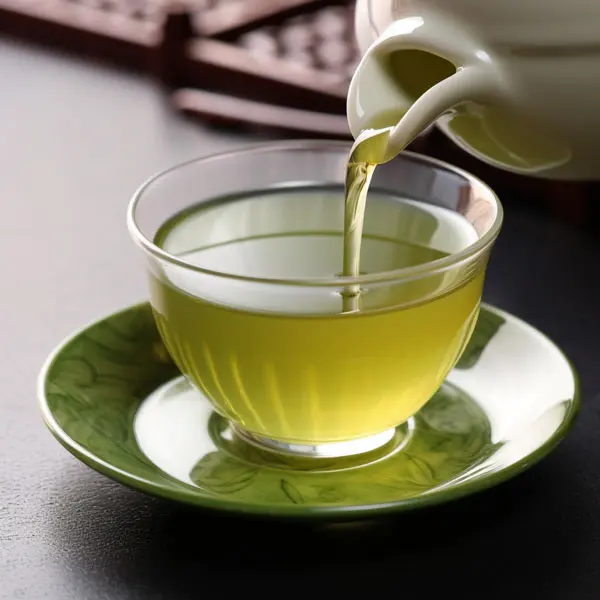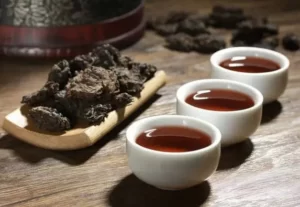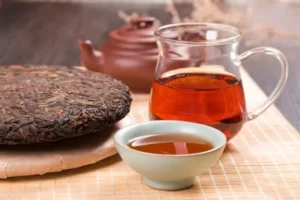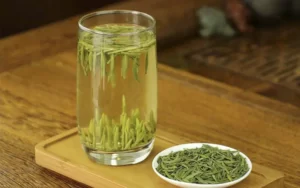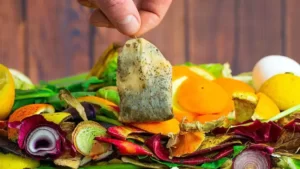I want to write about this topic from my friend. Emma, an avid tea drinker, decided to replace her daily water intake entirely with tea. After a week, she found herself feeling weak and thirsty despite drinking lots of tea every day. Emma soon realized that her tea consumption wasn’t adequately hydrating her body. She reintroduced water into her daily routine and noticed a significant improvement in her overall hydration levels.
Many tea lovers prefer the flavor of tea and choose to hydrate with tea instead of water. So in the long run, have you ever felt thirsty, sluggish, and your skin has lost its elasticity? This article answers the question of whether tea can replace water for hydration.
How Much Water Should We Drink in a Day?
According to medical research, adults should consume 2500ml of water per day. However, it doesn’t mean that we have to drink that much every day because more than 70% of the water we need comes from the vegetables, fruits, and meat we consume. So, excluding the water intake from our diet, drinking 1500ml of water per day, which is roughly 6-8 cups in a regular glass, is enough.
Can We Drink Tea Instead of Water?
Having an adequate amount of water can make you healthier. Especially in summer, when the body’s metabolism accelerates and sweating is more common, replenishing water is crucial. Many people don’t enjoy the taste of plain water and are wary of the sugar content in beverages, so they choose to drink tea to hydrate. But can drinking tea really replace water?
The answer is no. Although tea is considered one of the world’s three healthy drinks and contains beneficial substances like tea polyphenols, amino acids, and alkaloids, it doesn’t mean that drinking tea (especially strong tea) can replace drinking water.
Firstly, this is mainly because tea contains caffeine, which has a diuretic effect. Drinking an equivalent amount of tea (especially strong tea) compared to water leads to more frequent urination. Using tea as a long-term substitute for water often fails to provide proper hydration and can even result in reduced water content in the body.
Secondly, the caffeine in tea can stimulate the nervous system and cause problems such as insomnia. More seriously, if the caffeine in the body reaches 4-6mg/kg, discomfort may arise. If it reaches 15-30mg/kg, it can cause adverse reactions like increased heart rate, headaches, nausea, and vomiting. If it exceeds 150-200mg/kg, it can pose fatal risks. For example, a person weighing 100 pounds should not exceed an intake of 300mg of caffeine.
Which Tea is Better for Hydrating?
Now, let’s delve into which types of tea are better suited for replenishing water. While all teas provide some level of hydration, certain varieties can be more effective due to their composition and characteristics.
Herbal Teas: These teas, such as chamomile, peppermint, and hibiscus, are caffeine-free and typically rich in antioxidants. They are excellent options for hydration, offering a variety of flavors and potential health benefits.
Green Tea: Known for its high antioxidant content, green tea is a popular choice for its refreshing taste and potential health benefits. It contains moderate levels of caffeine, making it a suitable option for those seeking a mild energy boost. However, since it still contains caffeine, it’s essential not to rely solely on green tea for hydration.
White Tea: Considered one of the least processed tea varieties, white tea retains a higher water content compared to more heavily processed teas. It offers a delicate flavor profile and contains fewer tannins, making it an appealing choice for those looking for a milder option.
Fruit Infusions: These delightful blends combine various fruits and herbs, creating flavorful and hydrating infusions. Fruit infusions are caffeine-free and can be enjoyed hot or cold, making them a versatile choice for hydration.
How Much Tea is Appropriate to Drink Daily?

Let’s take a look at the main biochemical components of the six major types of tea. From the table above, we can see that the caffeine content is approximately 3%, although this is just an average, and different types of tea may vary.
In the summer, when we drink more green tea, let’s use it as an example. If we calculate based on a 3g tea infusion, the caffeine content is approximately 101mg. A person weighing 50kg can drink it three times a day. If we calculate based on a 5g tea infusion, the caffeine content is approximately 169mg, and a person weighing 50kg can drink it twice a day.
Of course, people with higher body weight can consume more. Generally speaking, it is advisable to consume 10-15g of dry tea per day and brew it 2 to 3 times a day.
Hydration, Tea is Still Preferred
Besides tea, carbonated beverages should not be used as a substitute for water. These drinks have high sugar content and long-term consumption not only leads to weight gain but also increases the risk of chronic diseases such as diabetes.
There are also mineral drinks. For the average person, mineral drinks are suitable for consumption after exercise or excessive sweating as the electrolytes and vitamins they contain can quickly replenish the body’s needs. However, they are not suitable for daily consumption because the sodium content increases the body’s burden, leading to an increased workload on the heart and elevated blood pressure.
Conclusion
Remember, not only can’t tea replace water, but no beverage can replace water. It is recommended to strike a balance between various fluids, including tea, to maintain optimal hydration levels throughout the day. A good method is to have a cup of water before bed, after waking up, one hour before lunch, at 2 PM, and at 5 PM.Developing a habit of regular water consumption while enjoying tea as an occasional complement will help you stay adequately hydrated and reap the benefits of both.
